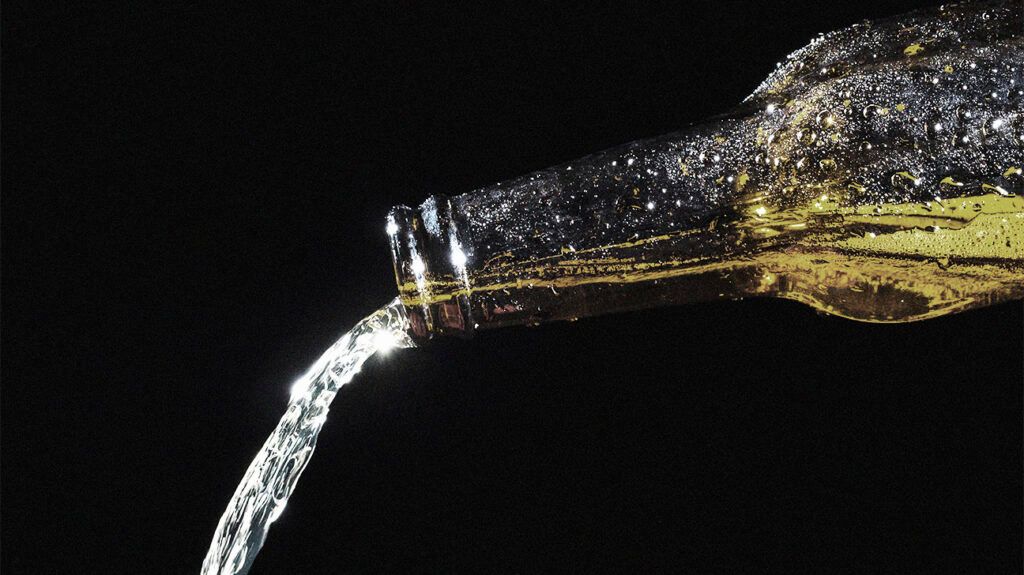Alcoholic neuropathy is a severe condition caused by excessive alcohol use. Damage to the nerves leads to unusual sensations in the limbs, reduced mobility, and loss of some bodily functions.
Neuropathy refers to nerve damage.
People should note that while “alcoholic neuropathy” is the current medical term, some healthcare professionals are beginning to use the term “alcohol-related neuropathy” to decrease stigma surrounding the condition.
In this article, we look at what alcoholic neuropathy is, what causes it, and how it may feel. We also explore how doctors diagnose and treat it.

A person who drinks alcohol excessively may start to feel a tingling sensation in their limbs. This
These nerves
A doctor may diagnose a person with alcoholic neuropathy, if alcohol use has damaged the peripheral nerves. People who drink heavily on a regular basis are at risk of developing this condition.
A systematic review suggests that
Excessive, long-term consumption of alcohol
Alcohol can impede the processing, transportation, and absorption of essential nutrients. Some people with alcohol use disorder also have inadequate food intake. This can lead to deficiencies in:
- vitamin B1 and other B vitamins
- vitamin E
- folate
Deficiencies in these nutrients can harm overall health and prevent nerves from functioning correctly.
Symptoms of alcoholic neuropathy
People who drink heavily on a regular basis and have one or more of the following symptoms should contact a doctor.
Limbs
Symptoms of alcoholic neuropathy in the limbs may include:
- cramps
- loss of movement
- muscle atrophy
- muscle spasms or twitches
- muscle weakness
- numbness
- pins and needles
Bowel and urinary system
Symptoms of alcoholic neuropathy in the bowel and urinary system may include:
Other areas of the body
Other symptoms of alcoholic neuropathy may include:
- difficulty swallowing
- abdominal bloating
- dizziness or fainting
- impaired speech
- infertility, in people assigned male at birth
- sexual dysfunction, including problems with erections or vaginal lubrication
- temperature sensitivity, to heat or cold
- vomiting or nausea
When speaking with a doctor, a person should be honest about how much alcohol they consume. There are several possible causes of neuropathy, and knowing about a person’s alcohol intake can help the doctor to make an accurate diagnosis.
Healthcare professionals
- Blood chemistry test. This can give an indication of a person’s overall health, including blood sugar levels and liver and kidney function.
- Complete blood count (CBC). This test can indicate how well the immune system is working and how much oxygen is traveling throughout the body. Doctors use it to diagnose and monitor a range of conditions.
- Esophagogastroduodenoscopy. During this test, a healthcare professional passes a thin tube with a camera down the throat to examine the upper gastrointestinal tract.
- Electromyography. In this test, a doctor inserts needles into areas of the skin and muscles to measure electrical activity.
- Nerve biopsy. A doctor will remove a small sample of a person’s nerve tissue, which is tested for damage. People usually undergo this procedure with a local anesthetic.
- Nerve conduction velocity test. This involves placing electrodes on the skin, which a healthcare professional uses to measure the speed and strength of a person’s nerve signals.
- Neurological examination. A doctor will conduct a physical examination to test a person’s reflexes, muscle strength, coordination, and sensory function.
- Upper gastrointestinal and small bowel series. Healthcare professionals use this set of X-rays to examine the functioning of the digestive tract.
A doctor may also want to test the functioning of the kidneys, liver, and thyroid. In addition, they may order blood tests to check for vitamin and nutrient deficiencies.
Treatment for alcoholic neuropathy
A doctor may suggest an inpatient detox when a person’s alcohol use disorder is very severe. Others may opt for an outpatient rehabilitation center. They
When significantly limiting or stopping alcohol consumption, receiving ongoing support is essential.
Alcoholic neuropathy can make daily life difficult, some treatments help by managing the symptoms. Individuals have different needs, and a treatment plan may involve one or more of the following:
- Vitamin supplements, which may include B vitamins, vitamin E, and folate.
- Pain relief medications, to manage discomfort associated with alcoholic neuropathy.
- Physical therapy, involving gentle exercises and activities to help with muscle and balance problems.
- Mobility aids, which may include pull bars in the bathroom, stair lifts, and orthotic devices, such as raised heels in shoes.
- Occupational therapy, which may involve practical advice for people with alcoholic neuropathy to help manage the condition and continue daily activities.
Alcoholic neuropathy is a severe condition that can lead to pain, loss of some bodily functions, and loss of mobility. However, recognizing the symptoms and seeking medical attention early may minimize the impact of the condition.
A person can
Individuals with alcoholic neuropathy can make a partial or full recovery, depending on the extent and duration of their alcohol consumption. A person should speak with a doctor about their individual outlook.
Alcoholic neuropathy refers to nerve damage resulting from chronic heavy alcohol use. Symptoms may include numbness and tingling in the limbs, muscle weakness, and loss of mobility.
The diagnostic process may involve neurological examination, blood tests, and electromyography.
Treatment primarily involves reducing alcohol consumption. A healthcare professional can offer support for people with alcohol use disorder. A doctor may also recommend treatments to manage neurological symptoms, such as pain relief medications, physical therapy, and mobility aids.
A person should speak with a doctor if they are experiencing any symptoms of alcoholic neuropathy or if they are concerned about their alcohol use.
